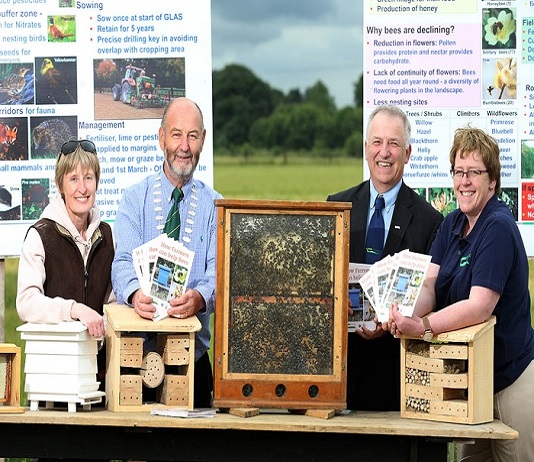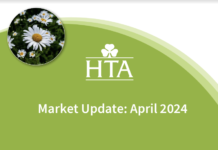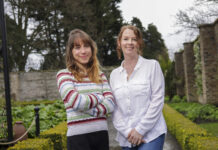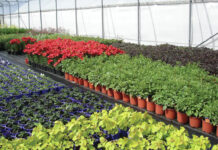

‘Bees need wildflowers on farms’ was the message from Teagasc and the Federation of Irish Beekeepers’ Associations (FIBKA) at the Teagasc National Crops and Cultivation Open Day in Oak Park today. A new leaflet ‘How Farmers can help Bees’ was launched today, Wednesday 28 June.
Addressing tillage farmers at the open day, Catherine Keena, Teagasc Countryside Management Specialist said: “Pollinators, especially bees, are important, but unfortunately are in decline. We need more wildflowers in the countryside. Bees need food all year round, requiring a diversity of flowering plants in the landscape. Farmers can help bees by allowing space for wildflowers to grow and flower within hedgerows and field margins, around farmyards, along with farm roadways and infield corners. The quest for neatness on farms should not override consideration for bees.”
Bees are essential for the health of our environment, our economy and to ensure we can continue to grow fruit, vegetables, and crops that require bees for pollination. By pollinating wildflowers and trees, bees are responsible for the colourful and distinct natural beauty of our landscape that makes it a pleasant place to live and a selling point for our agricultural produce.
Gerry Ryan, President of the Federation of Irish Beekeepers’ Associations, (FIBKA) welcomed the opportunity to promote the requirements of honeybees. He said: “Many beekeepers work closely with farmers placing their beehives in fields of oilseed rape, peas, and beans to improve pollination of the crops. It is important for tillage farmers growing these crops to provide pollinators with wildflowers outside the main crop flowering period.
Dr. Úna Fitzpatrick, Chair of the All-Ireland Pollinator Plan Steering Group said: “This leaflet is important to raise awareness of the problem of decline in bees. Ireland has 98 different species of bees and one-third of them are threatened with extinction. By having more wildflowers we can help protect bees and the livelihood of farmers and growers who rely on their ‘free’ pollinator service.”
Tillage farmers at the open day were also reminded to spray crop protection products, in the early morning and late evening when honey bees are less active, and to notify local beekeepers in advance of carrying out the operation.









